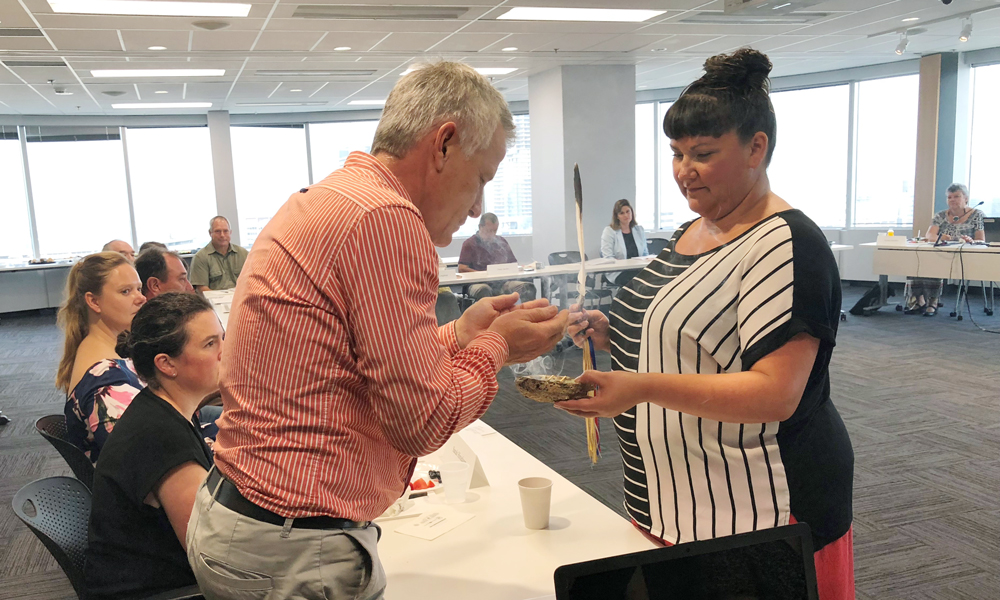The Nuclear Waste Management Organization (NWMO) recently held a workshop that brought together Indigenous Knowledge keepers and western scientists.
The initial gathering looked to explore ways of working together to implement Canada’s plan for used nuclear fuel, as attendees focused on elements – copper, clay and rock – of the multiple-barrier system that is planned in the deep geological repository.
“It is time for Indigenous Knowledge to take its equal place beside western science,” said Elder Fred Kelly, who began the workshop with a pipe ceremony and traditional drum song. “With human intellect, wisdom, truth, and knowledge, we can leave a good path for the safety of our children and grandchildren.”
The workshop featured Indigenous Elders and community members, advisors to the NWMO, experts in traditional knowledge, leaders and staff at the NWMO, as well as academics and professors from Canada, the United States and South Africa.
Over the two-day workshop, they shared information and perspectives on how Indigenous Knowledge and western science can be interwoven into research applications.
Alex Man, a geological engineer, and Danine Chief, a Community Liaison Officer with Wabigoon Lake Ojibway Nation, provided a shared presentation on how both of their knowledge systems can be brought to bear to understand, for instance, the land under study.
Digital data collection and laboratory analysis, combined with Indigenous Knowledge that includes advice and guidance received through ceremony, contribute to an understanding of rock from multiple dimensions.
“This kind of interactive research and communication is important as we proceed with implementing Adaptive Phased Management,” said Derek Wilson, the NWMO’s Chief Engineer and Vice-President of Contract Management. “We are looking for opportunities to apply Indigenous Knowledge in all the work we are doing.”
Gideon Wolfaardt, professor in the departments of Microbiology at Stellenbosch University in South Africa and Ryerson University in Toronto, expressed excitement about the NWMO’s steps to blend scientific knowledge and Indigenous knowledge.
“There is a sense of true commitment here,” Professor Wolfaardt said, “which is an example for the world. Indigenization should be a theme globally.”

